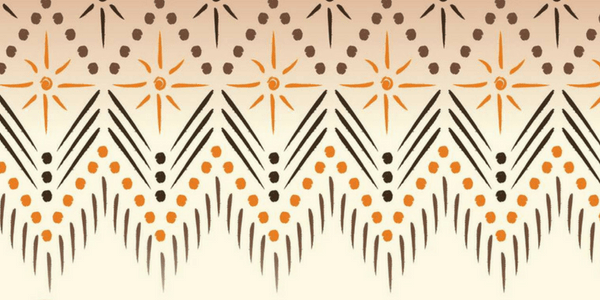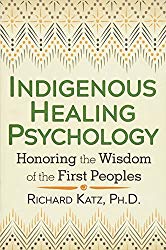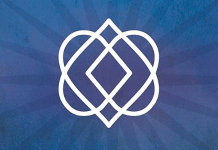
Indigenous Healing Psychology: Honoring the Wisdom of the First Peoples, by Richard Katz
Healing Arts Press, 9781620552674, 480 pp., 2017
Richard Katz’s latest release, Indigenous Healing Psychology: Honoring the Wisdom of the First Peoples, is a true shift of paradigm in the field of psychology. Stemming from a lifetime of experience, Katz has combined his background teaching psychology and working with Indigenous peoples around the world. This book provides well thought out insights into the intersections of modern psychology and Indigenous wisdom. Through a constructive critique of mainstream psychology, Katz offers what he has gained from embracing worldviews from various Indigenous cultures to highlight the pitfalls of the current system.
Indigenous Healing Psychology is a rather intensive read. As Katz has a PhD in psychology and more than 20 years experience teaching, much of the language is specific to those with a background in psychology. He touches on almost every facet of the field, from Cognitive Behavior Therapy to Humanistic psychology. To someone who does not have as much knowledge of the field, this may seem overwhelming at first. Yet, Katz does a great job summarizing theories to allow readers from all backgrounds to comprehend the perspective he offers, especially when he compares views within and between mainstream psychology and Indigenous psychology.
The book is divided into three parts. In the first section, Katz uses his real life experience to highlight the message that there is so much more to psychology than is valued and taught in modern mainstream academia. His personal background in the field serves to provide the foundation for how he developed this perspective over the course of his academic career and development. With a Harvard education, a university known for its prestige and merit, Katz depicts himself as a cross-cultural communicator and adventurer who pioneered psychology beyond the confines of sterile laboratory walls to the heart and soul of Indigenous traditions spanning the world. He goes to great lengths to guide the reader around problems within the field of psychology today, many of which stem from a reductionist or positivist point of view. He taps into the colonizing mindset of psychology, the focus on pathology rather than healing, the skepticism around psychological phenomenon that cannot be quantitatively measured, and the elitism psychological practitioners often display in regard to the mental health of others.
In the second section, Katz really dives into the wisdom he has gained from creating deep connections and bonds with certain Indigenous communities, specifically the Ju/’hoansi of the Kalahari Desert, Fijians native to the Fiji Islands, Lakota people of the Rosebud Reservation, and Cree and Anishinaabe First Nations people from Saskatchewan. In this section, each chapter is written in the same format. The focus of the chapter is described from the perspective of mainstream psychology’s approach, followed by an Indigenous psychology. Then there is an overview of where Indigenous psychology is concurrently overlapping within the mainstream psychology, and suggestions for how this could further be developed. Topics include the exclusion of spiritual experiences and altered states in mainstream psychology, the comparison between mainstream psychology of detached observation and Indigenous psychology’s focus on immersive experience, mainstream psychology’s focus on hierarchical stages of progression and develop compared to indigenous psychology’s appreciation for all stages of life, and mainstream psychology’s clinical practice compared to Indigenous community-based practice.
Indigenous Healing Psychology‘s final section elucidates Katz’s perspective on the future of psychologies. The plural form of psychology is used because Katz puts out a call for a more synergistic model of different psychologies that can “flourish in their own uniqueness while collaborating respectfully with each other.”1 The culmination of the book focuses on how this collaboration of psychologies can create a way of living that provides care for all, while also bringing an awareness to the sociopolitical power and control dominating mainstream society. The integration of mainstream and Indigenous psychology has the potential to ultimately lead to profound collective healing.
I found the book to be quite riveting. I am trained as a psychologist and all the points Katz hit upon during his analysis of mainstream psychology were similar to the grumblings I also have. Katz’s experience working with Indigenous communities is truly inspirational, and it brought me a sense of encouragement to go beyond the horizons of what constitutes mental health. I particularly like his focus on the Indigenous merging of spirituality with the way one approaches the world and their life, incorporating dimensions often cast out in field of psychology. The Indigenous psychology has much to contribute to the field, and I was glad to see Katz pioneering the way for this integration.
I highly recommend Indigenous Healing Psychology: Honoring the Wisdom of the First Peoples to anyone with a strong interested in the field of psychology, particularly someone who is pondering the intersection between Western approaches to mental health and Indigenous healing practices. The book is a consuming read, but well worth the dedication. It is bound to remain a well-reputed academic source. Indeed, I ended up including Indigenous Healing Psychology as a bibliographic source in the writing of my thesis. There is immense wisdom to be found outside the constrains of the tightly bound conventional world of psychology, and Katz has done a wonderful job encouraging the reader to open up to new psychological lenses, transforming the way the world can heal together, through unity and collaboration.
- p. 381 [↩]









